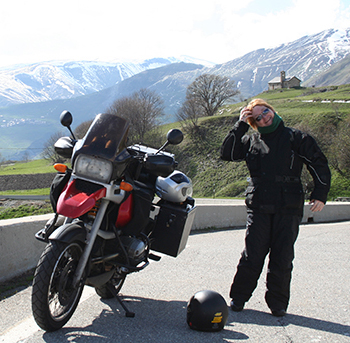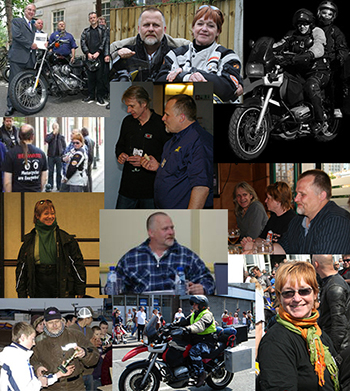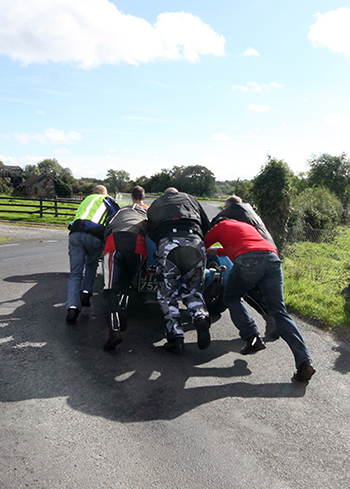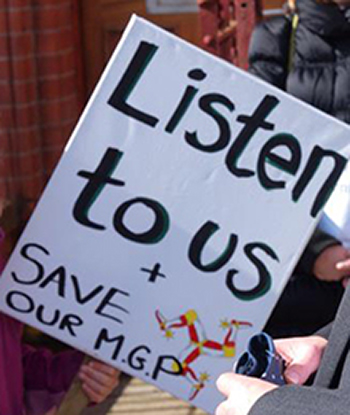 Almost a year has passed since I wrote an article about riders’ rights organisations on Linkedin. The article looks at the worth of established organisations are their decreasing membership and received quite alot of attention from around the world.
Almost a year has passed since I wrote an article about riders’ rights organisations on Linkedin. The article looks at the worth of established organisations are their decreasing membership and received quite alot of attention from around the world.
In light of recent events in London with groups being set up – such as We Ride London and the UK Motorcycle Theft Protest, the article below seems as relevant today as it was a year ago. In other words – established organisations are in constant search of members so that they can exist – but aren’t necessarily providing stimulus for people to join. Why pay somebody to represent you, when you can do it yourself? That’s what we learnt – along with loads of other riders.
Riders’ Rights or Riders’ Wrongs
Riders’ Rights or in simple terms, lobbying for motorcyclists. Throughout Europe and other developed countries, consumer organisations are fundamental to promote aspects of community life. This may differ as widely as lobbyists for hedgehogs or badgers to classic car or motorhome enthusiasts, or in the case of this article – motorcyclists.
Most people have views on life and the way they engage society which can become obsessive or simply a reflection of their style of living. Whether fishing for trout or riding a BMW – it all amounts to the pleasure we find and/or look for in our spare time.
Riders’ Rights
 In 2003 when I got involved in motorcycling (in order to write a PhD Thesis) I met people who were obsessed by their hobby or lifestyle – whatever you wish to call it – to the degree that they were involved in organisations to promote their “freedom to ride”.
In 2003 when I got involved in motorcycling (in order to write a PhD Thesis) I met people who were obsessed by their hobby or lifestyle – whatever you wish to call it – to the degree that they were involved in organisations to promote their “freedom to ride”.
Interestingly (for me at least) was the fact that I became involved in this aspect of motorcycling through work that I had carried out for the motorcycle industry. I had carried out a survey to find out whether security products actually made a difference in the reduction of motorcycle theft. Then as the research for my PhD thesis required carrying out surveys of motorcyclists in different countries, I approached an organisation which gave me access to all the cohorts I needed to complete my study.
Ultimately the support I received from the organisation at the time, was exceptional. I was very lucky and was able to finish my thesis. I was able to carry out two surveys – one of UK motorcyclists and one of Dutch motorcyclists. During that time I became the research officer of this particular organisation and was able to represent them in Brussels at the Federation of European Motorcyclists Associations.
A whole new world opened up before me. I learnt about lobbying, politics, and Riders’ Rights. I also learnt about the intrigue and back-stabbing that went with the politics and motorcycling organisations. This became apparent as I spent time with the organisations from various European countries which regularly met in Brussels to discuss the legislation that emanated from the European Commission/parliament with regards motorcycles.
At the time, the industry had produced the results of a study of motorcycle collisions throughout Europe. This study – MAIDS – was intended to be the best ever study of collision scenarios in order to provide solutions for PTW (Powered Two Wheeler) safety.
This is where it all becomes interesting – there is a view that the motorcycle industry and motorcycle lobby organisations have similar if not identical views as Riders’ Rights organisations with regards legislation and the development of motorcycling. Not true. In fact the discussions regarding the MAIDS report held with industry representative, highlighted the fact that these entities were divided in opinion – for a good reason. The industry wants to sell their goods, the lobby organisations representing their members, wish to consume them – those are very different positions to be in. In the event, we carried out an analysis of this study:
“MAIDS Critique by Elaine Hardy and Trevor Baird on behalf of the Motorcycle Action Group UK in October 2004.
Executive Summary
- The Association of European Motorcycle Manufacturers (ACEM) with the support of the European Commission and other partners conducted an extensive in-depth study of motorcycle and moped accidents during the period 1999-2000 in five sampling areas located in France, Germany, Netherlands, Spain and Italy. In this study a total of 921 accidents were investigated in detail.
- The Motorcycle Action Group UK (MAG UK) raised concerns about the methodology and findings of MAIDS with ACEM. The ACEM representative stated that the purpose of MAIDS was to identify ways of finding solutions because there are too many PTW fatalities; but as transpired, due to the lack of data, was unable to complete this task.
- ACEM states the MAIDS report is being presented as the base objective of scientific research and represents the first findings of the study but due to the fixed budget, further work on the report was not feasible. When MAG representatives requested that the authors accepted the limitations of the report and re-define it as a pilot study rather than as a definitive document on motorcycle accidents in Europe, the representative of ACEM declined because the EU Commission (a funding stakeholder) had insisted on publication of a final report.
- MAG UK has carried out a SWOT analysis: to identify the Strength, Weaknesses, Opportunities and Threats of the study. The greatest strength of the report is the finding that human error is the primary contributor of accidents – 50% of which are car drivers. This finding supports previous safety reports on motorcycling and opens up opportunities for educating the public on road awareness.
- The greatest weakness of MAIDS is that the report was commissioned and written for the Association of European Motorcycle Manufacturers. This becomes obvious on reading the report, for example the manipulation of the data has led to questionable findings regarding hardwiring and modified PTWs.
- After analysing the MAIDS report in detail, MAG UK has drawn its own conclusions and views it as just another study on safety by those with vested interests”.
Link to full critique (SWOT and MAIDS) here: SWOT Analysis of the MAIDS Report – pdf
MAIDS REPORT – COMMENTS – Motorcycle Action Group – United Kingdom – pdf
 This critique led to considerable friction within the Federation European Motorcyclists Associations (FEMA) but also between the industry and the UK government (Department for Transport) which, based on our critique and critiques by other research bodies, decided not to accept the outcome of the MAIDS study. Our name was mud in Brussels.
This critique led to considerable friction within the Federation European Motorcyclists Associations (FEMA) but also between the industry and the UK government (Department for Transport) which, based on our critique and critiques by other research bodies, decided not to accept the outcome of the MAIDS study. Our name was mud in Brussels.
We dared question the industry as well as the employees of FEMA with regards their handling of the relationship with industry especially with regards the MAIDS study. As a result the employees put forward a document entitled “Engagement and Trust” – with comments concerning the importance of maintaining the trust of other institutions and organisations.
There was recrimination and accusations made. We replied that
“we absolutely agreed that confrontation is generally unacceptable and unviable. Our own experience has proven that aggression and abusive language is a waste of time.
However, there are circumstances when it is necessary to disagree, to firmly criticise and even to walk away, in order to preserve and maintain our ethos and beliefs as representatives of riders in our respective countries. When all else fails, we have other alternatives at our disposition. We can make our views known, preferably with diplomacy but also through active dissent. This is our strength.
It would be a sad day if we were not able to express our views and concerns openly and even firmly if necessary. Riders’ organisations are not knitting circles and as we are all aware, the stakes (our freedom to ride) are high. It would be preferable if organisations that engage with FEMA accept our positions and views. However, there is a fundamental difference between working with other organisations and conceding our hard won freedom to them in order to maintain their approval or financial support.
In conclusion, it is our view that everything can be discussed. However, we must use a lot of prudence when a critical point is reached, because a decision that has not been thought through could worsen the difficulties rather than resolve them”.
In the end the confrontation came to a head and the employee resigned and went to work for the industry, nothing really changed, the meetings continued to be boring and the MAIDS report was accepted by the majority of the motorcycle community as the bees knees in terms of a report on motorcycle collisions even though research bodies felt that the report had serious limitations. A perfect example was the analysis of ABS and German motorcyclists – the survey was carried out with the BMW Owners Club, which highlights some of the flaws.
Riders Wrongs?
 So the question that needs asking is this : what is wrong with Riders’ Rights? In the case of voluntary organisations in general, it is accepted that people are attracted to these organisations because it gives them opportunities to fill their spare time or simply to participate with like-minded people in order to give meaning and purpose to their lives or perhaps to follow a hobby.
So the question that needs asking is this : what is wrong with Riders’ Rights? In the case of voluntary organisations in general, it is accepted that people are attracted to these organisations because it gives them opportunities to fill their spare time or simply to participate with like-minded people in order to give meaning and purpose to their lives or perhaps to follow a hobby.
What is evident is that in Northern Europe and to a certain degree France, motorcycling is seen as to be under threat. Regular press releases about fears of banning motorcycles or limiting “freedom” seem to be the mantra to get people to sign up to become members of these organisations. What is apparent is that over time, what was a threat can and does become accepted, or what was accepted can and does become a threat – because in voluntary organisations such as Riders’ Rights, people forget – or there is no recollection of what happened before or simply records are not kept. This is because in most of these organisations, people move on or are pushed on. There is no archive – not only nationally but at European level. There is no central library of Riders’ Rights – maybe a few diehards or “experts” who might be too lazy to clean out their computers.
Or in the case of those who are employed by these organisations – deliberately attempting to delete records or find that all their hard work has been left to rot in a storage container.
The tools are there, the problems are there, but those in control seem to think that their beliefs will be enough to attract members. Perhaps this is because some of these Riders’ Rights groups do not see themselves as responsible to offer information in relation to road safety, training, education, but rather as a call to arms, a rallying point to those in need of a purpose to ride a motorcycle? The only real advantage some of these organisations offer is to provide for members a quarterly magazine, a monthly newsletter and rallies during the summer.
The Nordic countries such as Sweden and Norway, are exceptionally good at providing “things” for their members to do – touring, camping, training, safety information and loads of “products” to keep their members informed and interested. However as is the case of the Swedish organisation SMC, it is a professional entity and the lobbying aspect is only part of what they do. Their magazines are competitive in terms of content and quality, with any good specialised commercial magazine. Their training courses are excellent and provide motorcyclists with an array of courses depending on the individual needs. Furthermore they are in constant contact with the authorities in their countries and have an open dialogue with their governments.
It is fascinating that for example in Sweden the SMC has 70,000 members while in Italy at last count the “Riders’ Rights” organisation in this country had 300. From south to north, the numbers appear to be comparable to the perception of threat.
Possibly with the exception of France where the Riders’ Rights organisation offers cheap insurance, a quality magazine, training and information for schools for young people who show an interest in motorcycling and an amazing ability to get bikers out there on the street to protest as and when required (although perhaps protesting is a French thing!?) Their actual membership is relatively low compared to the number of motorcycles and scooters registered – around 5,000 – yet as a professional organisation, they have been able to understand their “product” and are very successful in promoting motorcycling.
Other Riders’ Rights organisations in Europe are inclined to bumble along and it seems that the reason is a reflection of the amateur aspect of these voluntary organisations. The professional organisations such as SMC, NMCU, MCTC, FFMC survive and flourish, others appear to be in decline with membership dwindling.
There are 30 million PTW users in Europe. Right or wrong – whether these groups who lobby on their behalf makes the slightest difference in terms of improving the lot of two wheeled transport, is and will continue to be a topic of debate around campfires, pub tables or where-ever riders meet.
Elaine Hardy PhD


Hi Pete,
Ahh – the trials and tribulations of Riders’ Rights! We now live in the South of France and have found that there a different rider groups here too.
Ultimately the object is to keep riding and help others to do the same through promotion, dialogue and all that stuff. In that respect we wish you and your fellow riders all the best. In the past, I understood that Devon CC was very amenable to motorcycling issues – so hopefully they still are willing to listen and work with you. Best regards, Elaine (the other half of Motorcycle Minds).
Hi Elaine.
Our group at the moment is a secret group on facebook with several not very happy ex MAG members, we are more grass roots along with none MAG members. In our South West Regionl MAG is suffering losing groups & members, that unfortunately is not down to just personal clashes, but that’s enough of MAG. BMF don’t really exist this far down South, I’ve contacted them nearest meeting place to me is over 90 miles away.
We are small group number varies but at this moment we have 100 or so members. We have people who don’t ride but have ridden in past or lost a loved one through a biking accident, (another driver getting away with it again it seems).
We’ve worked with our local Council regarding road issues telling them at arranged meeting how we think road re-dressing can be done better. We’ve seen improvements in how re-dressing is now done is some areas not all, so we still have more work to get that message along with other messages across to North Devon Asset Management Team (NDAMT).
We will open our group to public eventually (I think) once we can control idiots & scammers, that’s a downside to facebook (fb).
On EU I will admit now I’m not experienced enough to challenge your knowledge, like I said we’re grass roots based supporting several different rider rights groups national but mostly local to us.
Only way to join our fb page (I think) is if you become a friend of me & other admins, or invited by people already in group. Anyone interested in joining our group BRAG please look for Peter Davidson with snoopy as a profile picture, send a friends request to be checked out & accepted.
Pete
Hi Pete,
A couple of comments to your comment…. I looked for the Bikers Rights Alliance Group (BRAG) on facebook, but I can’t find it apart from comments on other groups’ FB pages referring to BRAG. Perhaps you could explain how to find it?
Our view is that the “established” riders’ rights organisations manage to be far more successful through the work members do on local issues, albeit in certain parts of the country. However, overall, we noted that things tend to go wrong when it becomes national, possibly because their leadership is ineffective for all the reasons explained above.
With regards the EU, we will have to agree to disagree on that subject which we will explain in our next article with the catchy title “Motorcycling is alive and well, thanks to the European Union”. Hopefully you will be able to understand more clearly what goes on and how possibly motorcyclists were misled prior to the referendum.
Many newer rider rights groups set up thanks to facebook, a lot of people have moved away from bigger established rider action groups. Mainly because their issues need to be dealt with locally, now we’re leaving EU we can now focus on our roads & safety issues locally. We at Bikers Rights Alliance Group (BRAG) are another newly formed group on facebook.